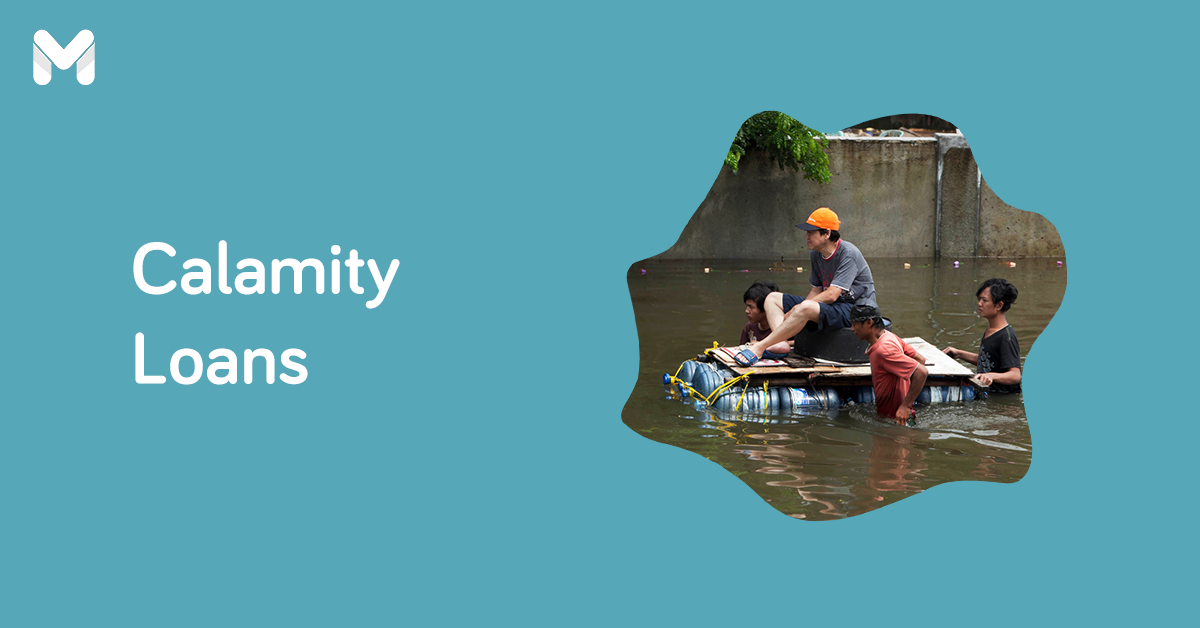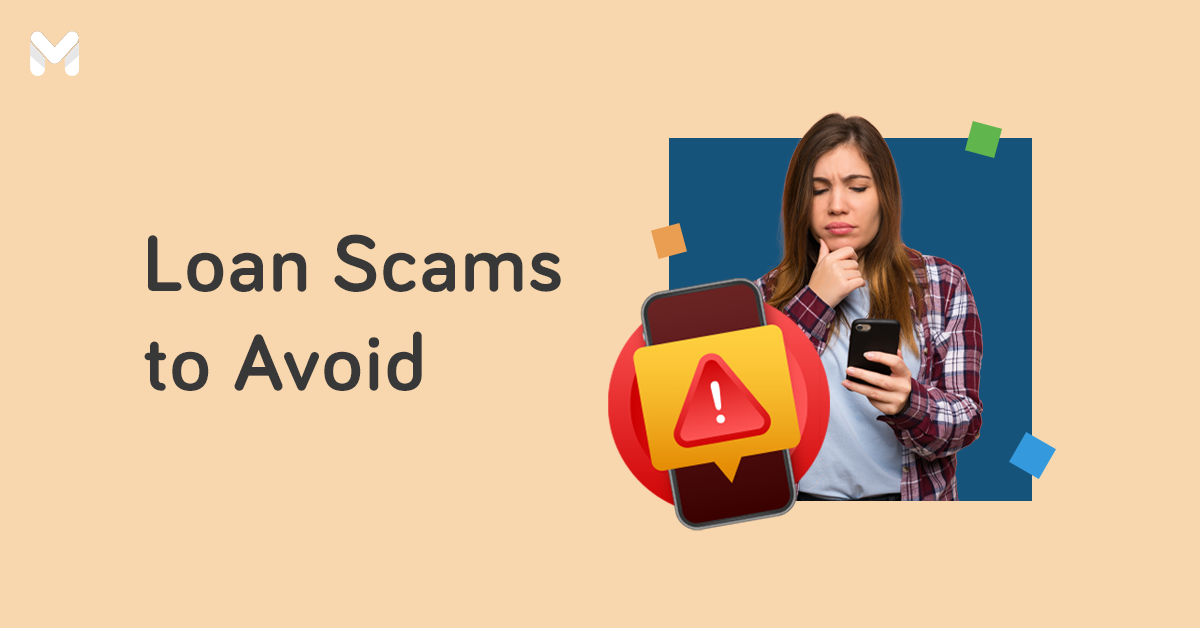Debts are a fact of life. Ordinary, financially healthy people like employees, business owners, and even multimillionaires have them.
If you want to be a financially responsible individual, you need to handle debts properly to get a good credit score. Some people, however, find it hard to cope with unpaid loans. Their salary and financial capacity aren’t proportional to the credit they’ve borrowed.
Nevertheless, you can make loan repayments more manageable and efficient with one solution: debt consolidation.
What is Debt Consolidation?
Debt consolidation[1] is a method of simplifying debts by bringing multiple debts together and turning them into one payment. It can be carried out in two ways: through a debt consolidation loan or the transfer of existing credit card debt to another credit card, also called balance transfer.
How Debt Consolidation Works in the Philippines
Think of it as putting Debt #1, Debt #2, and Debt #3 in one box. That single box will then convert the three debts into a single loan.
The said box will issue an invoice that states a fixed amount you need to pay every month. When you pay that fixed amount monthly, you’re actually paying for the three debts you’ve put inside that box until the agreed term ends.
When is Debt Consolidation a Good Idea?

You can view debt consolidation in two ways, both of which are obvious advantages. First, you can treat it as a practical method to stop paying high interest on your existing debts. Second, you can use it to organize manageable debts.
👍 When You’re Dealing with High Interest Rates
Debt consolidation is a good idea if your debts, such as credit card bills, have high interest rates. A new loan with a lower interest rate will make it easier for you to pay down or pay off all your debts. Moreover, the payment schemes are manageable, albeit longer.
👍 When You Want to Organize Your Debts
It’s also a wise strategy if you want to organize a manageable size of debt. Multiple debts usually have different due dates, making monthly payments a hassle.
But when you consolidate all your debts into one payment, you’ll have only one due date to remember. It’ll be easier for you to set aside repayment money and automate your monthly payments.
👍 When You Want to Clear Your Debts Fast
The great thing about a debt consolidation loan is that you follow a payment plan, helping you pay your debt a little faster. For example, if you want to settle your debts within a year, apply for a debt consolidation loan with a repayment period of not more than 12 months.
If you have significant debt, a debt consolidation loan can also put you on a faster track to paying it off. Unlike credit card providers that don’t give you a timeline to pay off your balance, a debt consolidation loan has a fixed payment schedule with a clear start and end date.
👍 When You Need More Time to Pay Off Your Loans
This is the opposite of the preceding benefit. If you have cash flow issues, consider getting a debt consolidation loan with a longer term. That way, you’ll have more time to settle your debt.
However, the downside is paying more interest in the long run.
👍 When You Have a Good Credit Score for Leverage
If you have a good credit score, use it to apply for a loan with a lower interest rate. In turn, you can save on interest throughout your chosen loan term.
When is Debt Consolidation a Bad Move?

Debt consolidation has its pros and cons. However, the drawbacks aren’t usually given the spotlight. Here are some situations where debt consolidation isn’t a practical idea:
👎 When You Think it Will Eliminate All Your Debts
Debt consolidation becomes a disadvantage when you think it will magically remove all your existing debts. Because your debts are rolled into a single payment, you may start feeling free of debt. This kind of dangerous thinking may lead you to get another loan.
👎 When Fees are a Burden
Debt consolidation loans usually come with fees. When you move the outstanding debt of your credit card to another card, you may have to pay balance transfer fees. You may also need to cover other related expenses, such as annual fees and closing costs.
Also, there’s no guarantee that a debt consolidation loan, which is technically a new loan, will have lower interest rates. Ultimately, it will still depend on your lender and your credit score. Your monthly payments may even come with a higher interest rate.
If you choose to pay less every month, the term of your debt consolidation loan will likely be extended. That means extending the period of your interest payment. In the long run, you may end up paying more interest.
Avoid debt consolidation loans if you’re prone to missing payments as well. You’ll have to pay a lot more once the late payment fees start piling up.
👎 When Your Debt is Small and Manageable
Debt consolidation usually works for larger debts. But if you have a single debt that you can pay within a few months (at least five to six), you probably don’t need it. This may even apply to zero-interest purchases using your credit card.
Just be mindful of your due dates to avoid penalties.
Read more: What Should I Do in Case of Non-Payment of Loans in the Philippines?
Does Debt Consolidation Hurt Your Credit Score?
It depends.
If you’re a diligent payer, you can use a debt consolidation loan to improve your credit score. With just one due date to remember, you can easily set aside money or automate payments so you can pay on time. Paying on time is one way to boost your credit.
However, consolidating your debts also poses risks that can hurt your credit. Take this situation, for instance: if you transfer the debts of your three other credit cards to a new credit card, that new credit card’s limit may get maxed out.
For creditors, this is a red flag. Your credit score might then be lowered.
Who is Eligible for a Debt Consolidation Loan?
A personal loan may double as a debt consolidation loan. This means the usual loan requirements apply. Depending on your lender, you’ll need to satisfy the following eligibility requirements:
- You must be at least 21 to 65 years old.
- You must be a Filipino resident; if a foreigner, you must be a local resident.
- You must be a principal credit cardholder (some lenders may not require this).
- You must meet the minimum income requirement (some lenders require at least ₱15,000 per month while others require at least ₱20,000).
14 Debt Consolidation Loans in the Philippines

Again, there are two ways to consolidate your debts: one is through a debt consolidation loan, and the other is through the transfer of your credit card debt to another credit card.
The second method may be pretty straightforward to understand, while the first may raise a couple of questions, as debt consolidation loans may sound foreign and technical to many.
Debt consolidation is a legitimate personal loan purpose. A lot of lenders offer loan consolidation in the Philippines. However, understand that not all banks and lending companies offer personal loans for debt consolidation.
Here are some of the best debt consolidation loans in the Philippines:
📌 UnionBank Personal Loan
Key features:
- Loan amount: Up to ₱2 million
- Monthly add-on rate: 1.29%
- Loan tenure: One to five years
- Approval time: As fast as five minutes
UnionBank offers a personal loan for debt consolidation that allows you to borrow up to ₱2 million with flexible repayment terms of up to five years. No collateral is needed for the UnionBank debt consolidation loan.
Its annual contractual rate or interest based on a 360-day period is 26.9%, which is relatively low. There are also charges for disbursement and closing.
You can get approved in as fast as five minutes, so you can expect a quick loan disbursement.
📌 Metrobank Personal Loan
Key features:
- Loan amount: ₱20,000 to ₱1 million
- Monthly interest rate: 1.25% to 1.75%
- Loan tenure: 12 to 36 months
- Processing time: Up to seven working days
Repaying several debts at once? Consider Metrobank's Personal Loan. You can borrow up to ₱1 million to fund your debt consolidation.
The monthly add-on rate varies depending on the loan term: 1.75% for 12 months, 1.75% for 18 months, 1.50% for 24 months, or 1.25% for 36 months. Rates are fixed, so you know how much to pay every month—a welcome change if you're tired of juggling multiple loans with different rates.
📌 BPI Personal Loan
Key features:
- Loan amount: ₱20,000 to ₱3 million
- Monthly add-on rate: 1.2%
- Loan tenure: 12 to 36 months
- Processing time: Five to seven working days
Another great option for consolidating debts is a personal loan from BPI. Borrow up to ₱3 million with a BPI debt consolidation loan with no need to pledge collateral. Moreover, you can pay for up to 36 monthly installments, so you can enjoy lower monthly payments.
Loan proceeds are disbursed quickly and safely to your BPI account as well. You can also conveniently pay online via BPI’s auto-debit facility.
📌 RCBC Personal Loan
Key features:
- Loan amount: ₱50,000 to ₱1 million
- Monthly add-on rate: 1.3%
- Loan tenure: Six to 36 months
- Approval time: Within five to seven days
Get the financial help you need to manage your debts and pay for one loan instead. The RCBC Personal Loan is multi-purpose, meaning you can use it to fund a variety of needs, including debt consolidation.
You can borrow from ₱50,000 to as much as ₱1 million and pay for up to 36 months. With a competitive interest rate of 1.3%, you can enjoy lower monthly payments.
📌 CIMB Personal Loan
Key features:
- Loan amount: ₱30,000 to ₱1 million
- Monthly add-on rate: 0.83%
- Loan tenure: 12 to 60 months
- Approval time: Up to two days
Get a loan from CIMB Bank to consolidate your debts. It's a fully digital personal loan you can easily apply for online. You can also get approved in up to two banking days!
Borrow up to ₱1 million and pay for up to 60 months. The monthly add-on rate is competitive, starting at 0.83%. This corresponds to an annual contractual rate of 18%.
Another great thing about this loan is that the required minimum gross monthly income is relatively low. Borrowers must have a gross monthly income of at least ₱15,000.
📌 SB Finance Personal Loan
Key features:
- Loan amount: ₱30,000 to ₱2 million
- Monthly add-on rate: 2%
- Loan tenure: 12 to 36 months
- Approval time: Within five banking days
A personal loan from SB Finance is also a good option for debt consolidation in the Philippines. Borrow anywhere from ₱30,000 to as much as ₱2 million and pay for 12 to 36 months.
Convenience is one of the key features of this loan. Apply online via the Zuki app, which is available on Google Play and the App Store.
Furthermore, the SB Finance Personal Loan doesn’t require collateral.
📌 Vidalia Personal Loan
Key features:
- Loan amount: Up to ₱100,000
- Monthly interest rate: 6%
- Loan tenure: Three to 12 months
- Approval time: Within two to five days
Looking for debt consolidation loans outside of banks? Through Vidalia Lending, you can send in your application online.
Once done, wait for Vidalia to contact you and request the documentary requirements. If you get approved, you can sign the forms and discuss the terms and repayment at Vidalia's office.
While the application process is quick and easy, note that the interest rate is quite steep at 6%.
📌 Asialink Refinancing Loan (Sangla OR/CR)
Key features:
- Loan amount: Depends on the appraised value of your asset
- Monthly interest rate: Inquire with Asialink
- Loan tenure: Up to 48 months
What about a collateral loan? With Asialink Finance's Sangla OR/CR, you can declare your vehicle title as collateral. You can get it back once you pay back the loan in full.
Fortunately, you can still use your car while paying off your loan—Asialink won't take your vehicle during the loan term.
📌 Asteria Personal Loan
Key features:
- Loan amount: ₱2,000 to ₱20,000
- Daily interest rate: 0.9%
- Loan tenure: 61 days to three months
- Approval time: Within 24 hours
Don't need a big amount to consolidate all your loans? Check out Asteria Lending. Aside from its easy online application process, Asteria offers a quick turnaround time of as fast as 24 hours.
Its terms are relatively shorter than those of typical loans, with the longest one lasting three months only. Take note, though, that it charges 0.9% interest daily.
📌 Digido Online Loan
Key features:
- Loan amount: ₱1,000 to ₱25,000
- Daily interest rate: 1.5%
- Loan tenure: Up to 180 days
- Approval time: One day
Can't get approved by banks because of a low credit score? If you don't need a big loan amount, take a look at Digido's loan product. First-time borrowers can get an amount between ₱1,000 and ₱10,000. Meanwhile, repeat borrowers can get up to ₱25,000.
While they get only a small amount, first-timers also get to enjoy a 0% interest rate. If you plan to be a repeat borrower, note that the interest rate is 1.5% daily.
📌 Blend PH Personal Loan
Key features:
- Loan amount: ₱50,000 to ₱2 million
- Monthly interest rate: 1.5% to 3%
- Loan tenure: 12 to 36 months
- Approval time: Within one to two days
This online lending platform offers a high loan amount of up to ₱2 million. Unlike traditional banks, however, it also offers an easy online loan application process via its website. Just sign up, fill out the form, submit the documents, and wait for loan disbursement.
Note that the Blend PH Personal Loan's interest rates vary, ranging from 1.5%, 2%, or 3%, depending on your risk category.
📌 Pag-IBIG Multi-Purpose Loan
Key features:
- Loan amount: Up to 80% of your Pag-IBIG Regular Savings
- Interest rate: 10.5% per annum
- Loan tenure: Within two to three years
- Approval time: Within two days
If you’re a Pag-IBIG Member, you can take advantage of the fund’s multi-purpose loan. You can use it not only for medical expenses and home improvement but also for debts.
According to Pag-IBIG, you can use the multi-purpose loan for credit card bill payments.[2] This especially comes in handy if you’ve already used credit card balance transfer.
Just keep in mind that you must have at least 24 monthly membership savings under the Pag-IBIG Regular Savings program to qualify for the loan. In case you have an existing Pag-IBIG loan, such as a housing loan or calamity loan, your account must not be in default.
📌 GSIS Multi-Purpose Loan
Key features:
- Loan amount: Up to 14 months of basic salary
- Interest rate: Up to 8% per annum
- Loan tenure: Depends on the members’ Period with Paid Premiums (PPP) and computed Basic Monthly Salary (BMS)
Are you a government employee looking to streamline your GSIS loan payments? The GSIS Multi-Purpose Loan and Consolidation of Debts or MPL can help.
If you’re a GSIS member, the said program will consolidate all of your existing loans except the housing loan. You’ll also receive an extra credit line, allowing you to consolidate and pay your existing GSIS loan balances.
This loan consolidation in the Philippines will put together the following financial obligations:
- Salary Loan (SL)
- Restructured Salary Loan (RSL)
- Emergency Loan Assistance (ELA)
- Enhanced Salary Loan (ESL)
- Conso-Loan Plus / Enhanced Conso-Loan Plus
- Summer One-Month Salary Loan (SOS)
- Member’s Cash Advance / eCard Cash Advance / eCard Plus Cash Advance
- Home Emergency Loan Program (HELP)
- Fly PAL, Pay Later (FPPL)
- Stock Purchase Loan (SPL)
- Educational Assistance Loan I and II (EAL I / II)
- Study Now, Pay Later (SNPL)
📌 SSS Conso Loan Program
Key features:
- Loan amount: Depends on your unpaid loan amount
- Interest rate: 10% per annum
- Loan tenure: Six to 60 months
Got multiple debts with SSS? Check out the agency's Consolidation of Past Due Short-Term Member Loans with Condonation of Penalty, or simply Conso Loan.[3] If you have outstanding salary, calamity, emergency, or restructured loans and struggle to make repayments, use the Conso Loan to combine the principal and interest of all loans in one.
Note that to qualify, you must have not been granted any final benefit such as permanent total disability or retirement. To apply, use your My.SSS account.
📌 Finbro Personal Loan
-png-1.png?width=751&height=219&name=image%20(30)-png-1.png)
Apply now via Moneymax to get started on your quick loan!
- Loanable amount: ₱1,000 to ₱15,000
- ₱1,000 to ₱15,000 on your first loan
- Up to ₱50,000 on succeeding loans
- Monthly add-on interest rate: 0% to 0.2% daily or 6% monthly
- Loan tenure: 12 months
- Processing fees: Cap of 15% monthly
- Processing time: Between 10 minutes to 1 business day
6 Things to Consider in a Debt Consolidation Loan
-1.png?width=630&height=420&name=Pics%20for%20blog%20-%20600x400%20(3)-1.png)
Don’t get the first debt consolidation loan you see. Check the following before you submit your application:
✔️ Approval Requirements
Most loans for debt consolidation in the Philippines require a good credit report and payment history, as well as a stable income for repaying the loan. In short, there shouldn't be any red flags that indicate you're a big risk.
If you have a less-than-stellar credit report because of unpaid loans or credit cards, hence the need to consolidate your debt, look for other debt consolidation loans in the Philippines with easier requirements or more flexible approval criteria.
Consider getting a secured loan if you need a high loan amount and have an eligible asset, such as your house or car, that you can pledge as collateral.
✔️ Fees and Interest Rates
Debt consolidation loans in the Philippines often advertise low rates, but they’re not always guaranteed. The actual rates will still depend on your credit. Also, factor in origination fees, late fees, and pre-payment penalties.
Make sure to get different quotes from lenders. Compare and then fully understand the terms and conditions to know what interest rate you’ll be paying.
✔️ Loan Amount
If you have a significant amount of debt to consolidate, you’ll need a bigger loan amount. Do your research to find a debt consolidation lender that offers the amount that you need.
✔️ Loan Terms
Pick a debt consolidation lender with terms that suit your repayment capacity.
A longer term may work for you, especially if you’re working within a limited budget. This is because the monthly payments are usually low. However, this may mean paying the interest longer than you’d like.
If possible, pick a shorter loan term. The monthly payment may be quite high, but you’ll be able to deal with your debts as soon as possible.
✔️ Application Process
Consider the ease of application, especially if you are a busy person. These days, a lot of lenders allow their borrowers to apply online. Save time by working with this type of provider of loan consolidation in the Philippines.
✔️ Customer Service
If you’re getting a debt consolidation loan, make sure it provides several customer service options. If customer service facilities like chat, email, or 24-hour hotlines are important to you, ensure that the debt consolidation loan provider offers them before sending in your application.
Alternatives to Debt Consolidation Loans in the Philippines
-Jan-24-2024-02-49-23-7963-AM.png?width=600&height=400&name=Pics%20for%20blog%20-%20600x400%20(6)-Jan-24-2024-02-49-23-7963-AM.png)
Sometimes, debt consolidation is not the ultimate answer. In that case, try these alternatives:
✔️ Adjust Your Budget and Financial Habits
If your running debts are still manageable, maybe a few tweaks in your budget can do the trick. Look at your monthly expenses and cut corners when you can (e.g., prepare your meals instead of eating out, avoid wasting electricity, buy generic brands instead of branded ones, etc.). You can then use the savings to pay off your bills and loans.
✔️ Get Refinancing
Refinancing involves taking out a new loan to settle the outstanding loan. This strategy is useful when the interest rate is low and you want to take advantage of it.
Refinancing is a common tactic in paying off a home loan. However, you’ll need to cover some costs to avail of this program.
✔️ Apply for the Credit Card Amnesty Program in the Philippines
Also known as the Interbank Debt Relief Program (IDRP), the credit card amnesty program is a repayment plan that rolls together and restructures your credit card debts. It makes repayment easy through affordable monthly amortizations and low interest rates.
With the IDRP, the maximum interest rate is 1.5%. Repayment terms can reach up to 10 years, but such tenors usually apply to extreme cases.[4]
This program is managed by the Bangko Sentral ng Pilipinas (BSP) and member banks of the Credit Card Association of the Philippines (CCAP).
Read more:
- Drowning in Debt? Here’s How to Pay it Off
- 6 Ways to Get Out of Debt Faster Despite Having Low Income
Final Thoughts
If you need to manage your debts, debt consolidation in the Philippines can be a good option. However, you must think things through first, especially if this is your first time using this debt management strategy.
First, if your debts are still manageable, try to find other ways to deal with them. You can sell items you don’t need anymore or add another income stream, such as a part-time job.
Second, if you decide that this is the best way to manage your debt, find out if you can avail of lower interest rates and calculate the fees that come with the new loan. Ultimately, stick to new money-saving habits that will help you put your debt under control.
Sources:
- [1] What Is Debt Consolidation and When Is It a Good Idea? (Investopedia, 2024)
- [2] Pag-IBIG MPL FAQs
- [3] GUIDELINES ON THE CONSOLIDATED LOAN PROGRAM WITH CONDONATION OF PENALTY
- [4] Payments and Collection (Credit Card Association of the Philippines)







_1200x350.png?width=751&height=219&name=UB_PL_Generic_2_(Jan_2025)_1200x350.png)
_1200x350.png?width=734&height=214&name=UB_PL_Generic_2_(Jan_2025)_1200x350.png)


